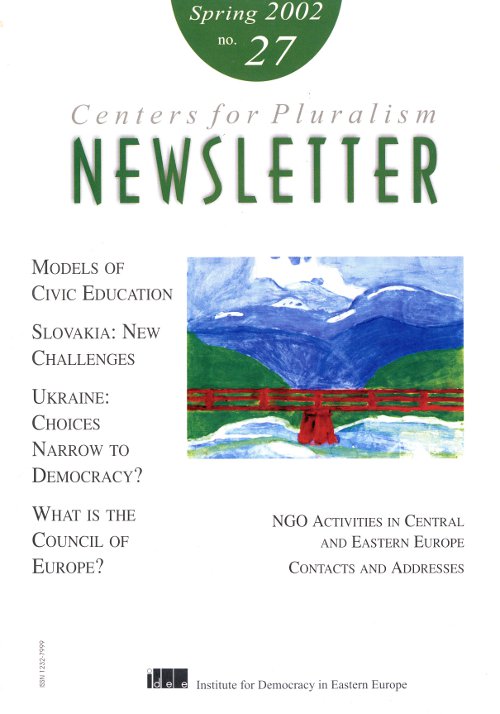- Kamunikat.org
- Бібліятэка
- Кнігазборы
- Калекцыі
- Іншае
Centers for pluralism 27/2002
The idea of general civic education is inseparably connected to the idea of democracy. Already in ancient Athens, it was assumed that every citizen should actively and fully participate in the governance of the country. Thomas Jefferson’s statement above points directly to the need to introduce various forms of civic education. The introduction of general civic education is often also connected to the aim of authorities to introduce a new, democratic order. Following the Second World War, for example, the Allies undertook a huge effort aimed at transforming German and Japanese societies. In united Germany, the federal authorities placed a huge emphasis on a campaign of civic education for citizens in the eastern lander. The introduction of civic education, particularly in school, is sometimes the reaction to a crisis in democratic societies. The decline in voter turnout noted in recent decades in the United States, as well as John F. Kennedy’s conviction that “in a democracy, the ignorance of a single voter, weakens the security of everyone,” led to the introduction of civics as a required subject in the majority of U.S. states over the course of several years in the 1960s. (Krzysztof Stanowski, Models of Civic Education, fragment)
- Месца выхаду: Warsaw
- Дата выхаду: 2002-04
- Рэдактар: Jakowska Anna
- Выдавец: Institute for Democracy in Eastern Europe
- Памеры: 68 s.
- Кнігазбор:
- EEDC — бібліятэка Усходнеэўрапейскага дэмакратычнага цэнтру, ul. Proletariacka 11, Białystok (папяровы асобнік)
- Інвэнтарныя нумары: EEDC — 2770, 2770-2
Пры выкарыстаньні матэрыялаў у Інтэрнэце прамая гіпэрспасылка на Kamunikat.org абавязковая.
Ідэя сайту Яраслаў Іванюк
